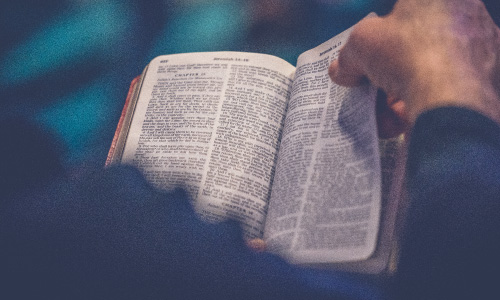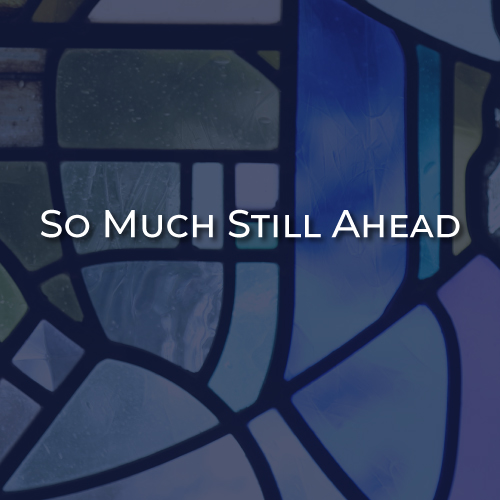Day 20
Posted on: March 8, 2024
by: Gerrit Dawson, Senior Pastor
by: Gerrit Dawson, Senior Pastor
DAY 20 FRIDAY
Gethsemane: In God I Trust
Imagine standing with Jesus, right next to him, in prayer to his Father. Read this passage of praise aloud. As you do so, consider that you are praying along with Jesus, your two voices becoming one as you bless God.
Bless the LORD, O my soul,
and all that is within me,
bless his holy name!
Bless the LORD, O my soul,
and forget not all his benefits,
who forgives all your iniquity
who heals all your diseases,
who redeems your life from the pit,
who crowns you with steadfast love and mercy,
who satisfies you with good
so that your youth is renewed like the eagle’s. (Psalm 103:1-5)
Psalm 56
Once more, as you read, kneel beside Jesus in the Garden of Gethsemane. Join your heart to his voice as he prays this psalm. Let your emotions follow the range of Jesus’ feelings. Rejoice in the resolution he reaches. Give thanks for the trust he achieves.
Be gracious to me, O God, for man tramples on me;
all day long an attacker oppresses me;
my enemies trample on me all day long,
for many attack me proudly.
When I am afraid,
I put my trust in you.
In God, whose word I praise,
in God I trust; I shall not be afraid.
What can flesh do to me?
All day long they injure my cause;
all their thoughts are against me for evil.
They stir up strife, they lurk;
they watch my steps,
as they have waited for my life.
For their crime will they escape?
In wrath cast down the peoples, O God!
You have kept count of my tossings;
put my tears in your bottle.
Are they not in your book?
Then my enemies will turn back
in the day when I call.
This I know, that God is for me.
In God, whose word I praise,
in the LORD, whose word I praise,
in God I trust; I shall not be afraid.
What can man do to me?
I must perform my vows to you, O God;
I will render thank offerings to you.
For you have delivered my soul from death,
yes, my feet from falling,
that I may walk before God
in the light of life.
What Is This Psalm About?
This lament about the oppression of enemies yields to trust as the psalmist recalls the compassionate character of the LORD. A strong resolution of faith creates a joyful conclusion. Patrick Reardon comments on the last line, “In this psalm’s act of trust, the future itself becomes a sort of narrative past” (110). Fear gives way to confidence. Worry becomes hope.
What Might This Psalm Have Meant to Jesus?
We hardly dare listen in on Jesus’ prayers in Gethsemane. His agony before his Father is so intimate that I feel like an eavesdropper. This is the raw soul of the Savior, heaving between emotions, pulling away, drawing near, recoiling and recovering, crying and consecrating. The Gospels recount these hours in very measured language. The Psalms, however, can help us fill in the content of his struggle. They enable us to keep watch, in fear and trembling, with our Lord’s struggle to consecrate his will even as his heart was breaking.
We miss the point entirely if we think the outcome—Jesus’ arrest, trial and crucifixion—was guaranteed. Jesus later asks those who arrest him, “Do you think that I cannot appeal to my Father, and he will at once send me more than twelve legions of angels?” (Matthew 26:53). At any moment, Jesus could be delivered from his enemies. He could walk away just as he passed untouched through the mob in Nazareth (Luke 4:30). He could overwhelm soldiers with a word, as he soon will when they come to arrest him (John 18:6). He could save himself any time. But he knows that in doing so we would be lost.
Hebrews 5:7-9 tells us, “In the days of his flesh, Jesus offered up prayers and supplications, with loud cries and tears, to him who was able to save him from death.” We can’t help but think of the Garden of Gethsemane. Jesus profoundly resists the coming hours. He cries out his desire to be spared the cross. Hebrews takes us further: “Although he was a son, he learned obedience through what he suffered.” Even though he has loved and served his Father for thirty-three years, he has more to learn this night.
For the enemy is not flesh and blood. Not Romans or Pharisees. The enemy is the cosmic choice against God, the “My way, not your way” that gets reenacted in every human and demonic heart. And the contest has never been for external control of this little world. The prize has always been the human will. Can our choicemaking be restored? Will one human being stay faithful to the Father from the first heartbeat to the last breath? Such a person would be the beginning of a new human race. That person would have to confront the deep taproot of human rebellion and dig it out. If someone could say yes to the Father at the very moment everything in him and around him screamed no, then we could all be set free. So concludes our Hebrews passage: “And being made perfect, he became the source of eternal salvation to all who obey him” (Hebrews 5:9).
We can scarcely comprehend the strength of resolve Jesus exercised in Gethsemane. The agony of temptation to quit his task raged through him. The slime of human sin sticking to him disgusts his holy soul. The receding of the perception of his Father’s loving favor crushes him. How tragically fitting that he prays by an olive press near the great stone that crushes out their oil. Yet into that darkest night of the soul ever experienced, Jesus flared the light of faith: “Father, if you are willing, remove this cup from me. Nevertheless, not my will, but yours, be done” (Luke 22:42). Nevertheless. Yet not. Not me and what screams through me now as my desire. But you. What you want. What we agreed on all along.
In that consecration, Jesus finds the resolution of Psalm 56. He prays the words, as David did, in the perfect tense. That signals that an action has already been completed, as if the deliverance to come is so certain, that it has already happened: “For you have delivered my soul from death . . . that I may walk before God in the light of life.” This victory over the ultimate temptation has required Jesus to submit his will to his Father for what lies ahead. But from now on, he enters his suffering in peace. Excruciating it will be, but his will is resolute: “In God I trust.”
Praying with Jesus
You prayed your agony with loud cries.
Did it comfort you to envision
Your Father catching those tears
In his little bottle of love
That can hold an ocean of sorrow?
Did you draw hope from the picture
Of your Father caring so much
That he made note of every pain,
Writing it in a book of remembrance
That will be an everlasting celebration
Of every act of hope amidst hopelessness?
You were working without a net, Jesus.
Only the abyss would catch you
If you fell while tight-roping in the dark
Against a stiff wind and harsh taunts.
You chose by faith not feel,
By remembered worship
Not present presence.
You gave yourself once more to the Father
For us. For me. So a light would shine
Down every dark road I must tread.
So I could believe its worth,
When it doesn’t feel like it, to say,
“In God I trust, what can man do to me?
When I am afraid, I put my trust in you.”
Posted in:
Lent




 Close
Close









.jpg)

